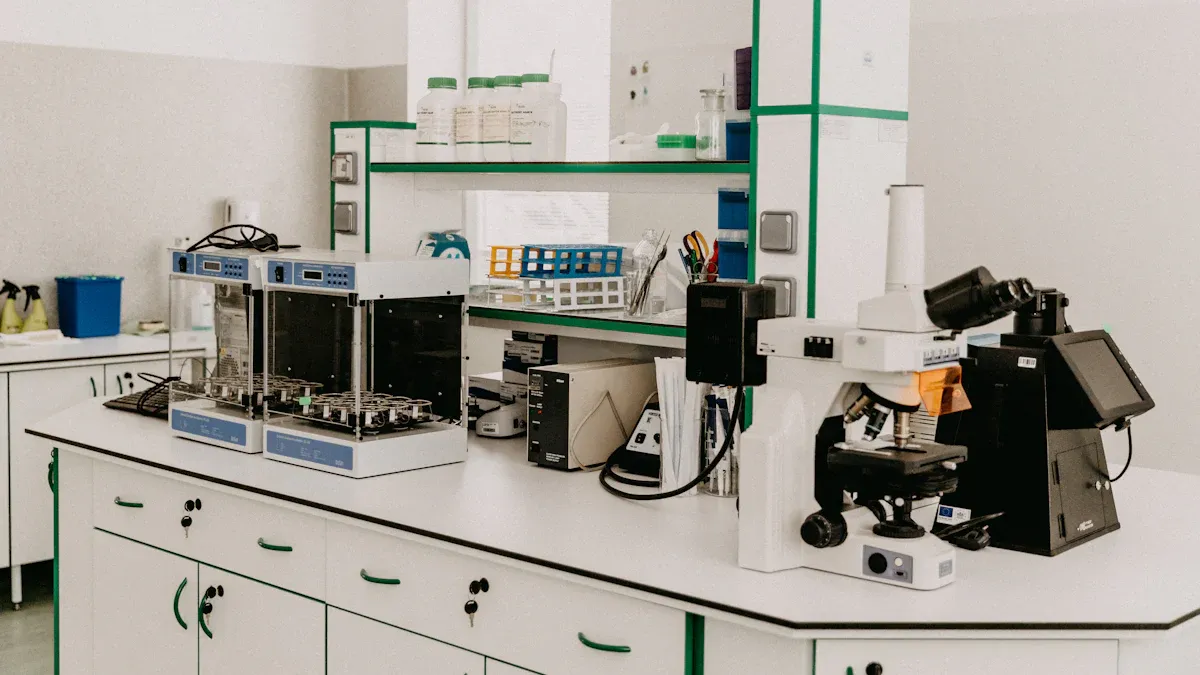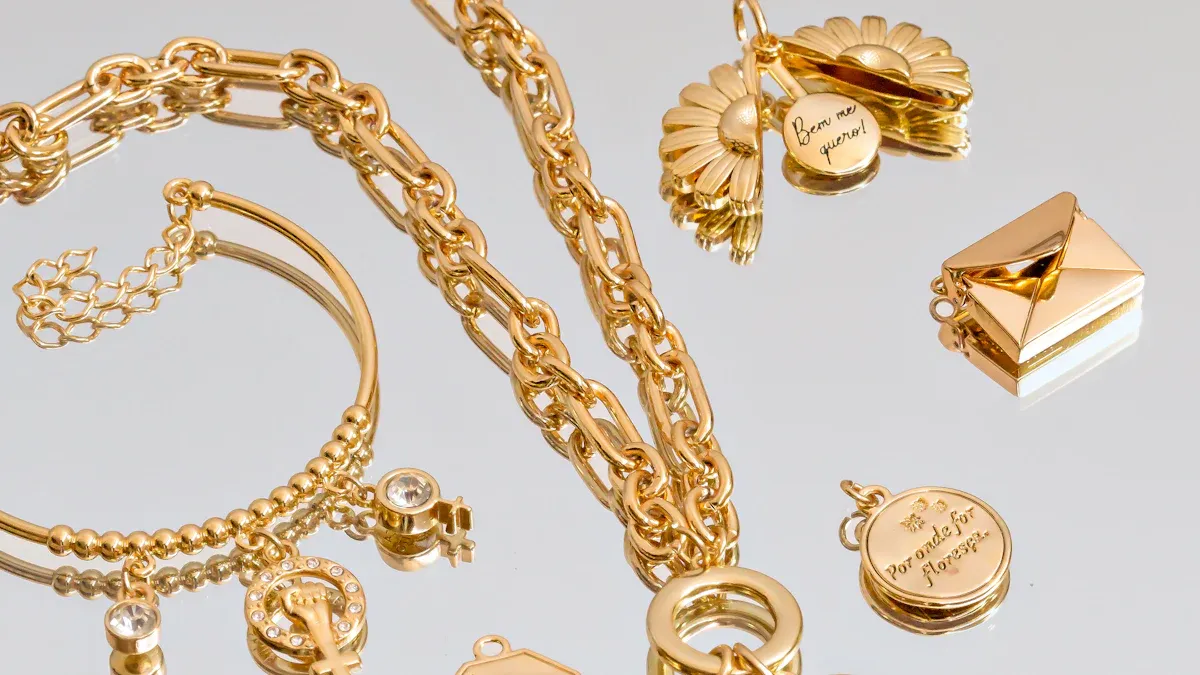¿Cómo identifican las máquinas XRF del tipo de metal??
XRF machines identify metal types by analyzing the unique way each metal emits X-rays when exposed to a high-energy source. Every metal element emits a distinct “fingerprint” of energy, and XRF devices read that fingerprint in seconds. This allows users to know exactly what type of metal they are analyzing—whether it’s oro, plata, platino, or an alloy—with high precision and without damaging the sample. XRF (Fluorescencia de rayos X) is widely used in jewelry appraisal, gold recycling, control de calidad, and metal refining for its speed, convenience, y confiabilidad.

Let’s explore how this process works from a user’s point of view, how VRAY’s technology improves accuracy, and which device suits different professional needs.
What Happens Inside an XRF Machine?
When a metal sample is placed inside an XRF machine and exposed to an X-ray beam, the atoms in the metal become “excited.” This excitement causes inner electrons to be displaced. As electrons from outer shells fall into the inner shell to restore balance, they release energy in the form of secondary X-rays. These energy emissions are specific to each element.
The XRF machine detects this emitted energy and compares it to a known database of element signatures. Within seconds, the device identifies the metals present and calculates their proportions. The result? A clear breakdown of the metal type and its purity—no need to melt, scratch, or alter the sample.
Why Real Users Prefer XRF for Metal Identification
Professionals across industries—from goldsmiths and jewelry shop owners to recyclers and pawnshops—choose XRF testing because it eliminates guesswork. Traditional methods like acid testing are slow, imprecise, and can damage valuable items. XRF is non-destructive, rápido, and easy to use.
Imagine a jeweler testing a ring suspected to be 18K gold. Con un Analizador XRF, the jeweler gets real-time results showing the percentage of gold, cobre, y plata. Similarly, a pawn shop can use a de mano analyzer to verify if a bracelet is genuine gold or simply gold-plated. XRF tools help avoid fraud, optimize pricing, and maintain customer trust.
What Makes VRAY XRF Analyzers More Accurate?
En Vray Instruments, we design our XRF analyzers specifically for precious metal testing. Unlike generic metal analyzers, VRAY’s machines are optimized for detecting even subtle differences in gold alloys, silver purity, and trace elements like rhodium or palladium.
Key technologies include:
- Detector de si-pins: Found in models like the VR-X5 y VR-M5, these detectors deliver exceptional sensitivity, allowing users to detect as many as 20+ metal elements in a single scan.
- Multi-FP Algorithms: This advanced software increases the precision of composition readings, even for complex or coated samples.
- Customizable Reports: Devices such as the VR-T9 offer configurable output reports, perfect for compliance, resale, or inventory control.
All VRAY machines also feature safety protections like automatic radiation shielding, temperature controls, and robust structural design for consistent performance—even with heavy daily use.
Choosing the Right VRAY Analyzer for Your Needs

Not every professional needs the same kind of device. VRAY offers a full line of XRF analyzers tailored to your workflow.
1. For Jewelry Shops & Gold Retailers
Recommended models: VR-X3, VR-X5
- Designed for testing gold purity and identifying alloy content.
- Desktop-friendly with integrated PC and touchscreen.
- Preciso, rápido, and ideal for frequent testing.
2. For Pawnshops, Reciclaje & Mobile Use
Recommended model: VR-H5 (Handheld XRF)
- Portable and rugged for on-site testing.
- Battery-powered with an industrial-grade touchscreen.
- Instant results and smart detection technology.
3. For Manufacturing & Quality Control Labs
Recommended models: VR-T7, VR-T9
- Advanced analyzers with ultra-high precision (± 0.001%).
- Microbeam focus and spectrogram comparison functions.
- Capable of analyzing irregular samples and high-purity materials.
4. For Bulk Testing & Wholesale Gold Verification
Recommended models: VR-T6, VR-S6
- Compact benchtop systems with full metal range detection.
- High throughput for analyzing multiple items daily.
- Ideal for large-scale refiners and inspection institutions.
Tips for Getting the Best Results from Your XRF Analyzer
- Clean Samples First: Suciedad, oils, or coatings can affect accuracy. Wipe with a soft cloth before testing.
- Use Calibration Standards: VRAY analyzers come pre-calibrated, but periodic checks improve confidence.
- Test in Consistent Conditions: Temperature and lighting can influence results slightly. Always use the device in a stable environment.
- Avoid Overexposure: For portable models, ensure sample exposure time is optimized—not too long or too short.
Why Investing in XRF Pays Off Long-Term
While XRF devices may seem like a large upfront investment, they quickly pay for themselves through faster operations, reduced losses from misidentification, and improved reputation. Especially for gold traders, joyería, o recicladores, even a small increase in accuracy can mean thousands of dollars saved or gained annually.
VRAY also offers full technical support, capacitación, and customization options to help your business maximize ROI from day one.
Preguntas frecuentes
Q1:Can an XRF machine tell the difference between real gold and gold-plated items?
A1:Sí. VRAY’s XRF analyzers can detect surface-level coatings versus core metal composition, making it easy to spot gold-plated items.
Q2:Is XRF testing safe to use in a shop or office?
A2:Absolutamente. VRAY devices include shielding and safety interlocks, so there is no radiation leakage. They are designed for safe, daily indoor use.
Q3:¿Cuánto tiempo dura una prueba XRF??
A3:Most results are available within 5–15 seconds. High-precision models may take slightly longer for detailed breakdowns.
Q4:Do I need technical training to use an XRF analyzer?
A4:No necesariamente. VRAY’s user-friendly interfaces allow even first-time users to operate the machine with minimal training. We also offer optional onboarding support.
Q5:What is the smallest amount of metal an XRF machine can detect?
A5:With VRAY’s high-end models like the VR-T9, detection limits can reach as low as 0.001%, ideal for identifying trace elements in high-purity metals.

WhatsApp
Escanea el código QR para iniciar un chat de WhatsApp con nosotros.